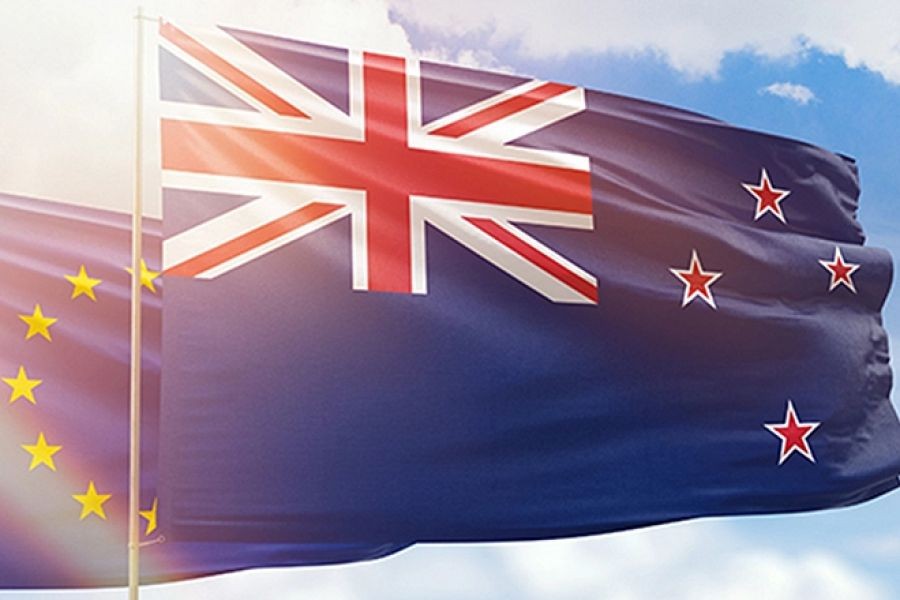In an interconnected world, trade agreements have become vital instruments for economic growth and sustainability. For New Zealand, a country known for its robust agricultural sector and innovative industries, understanding how global trade agreements can bolster its economy is crucial. This article delves into five pivotal global trade agreements that offer significant benefits to New Zealand, providing insights that are essential for commercial real estate brokers and investors alike.
Comprehensive and Progressive Agreement for Trans-Pacific Partnership (CPTPP)
The CPTPP is a monumental trade agreement involving 11 countries from the Asia-Pacific region, including New Zealand. It covers markets with over 495 million people and 13.5% of the global economy. For New Zealand's commercial real estate sector, the CPTPP offers opportunities for growth, particularly in the agribusiness and tech sectors.
Case Study: New Zealand's Dairy Industry The CPTPP has facilitated New Zealand's dairy exports, reducing tariffs and increasing market access. According to Stats NZ, the agreement has contributed to a 12% increase in dairy exports to member countries, demonstrating substantial benefits for the agricultural sector.
Benefits for the Real Estate Sector
- Increased Demand for Industrial Space: As exports grow, the demand for logistics and warehousing facilities increases, driving up industrial real estate values.
- Investment Opportunities: Foreign investors, attracted by New Zealand's favorable trade conditions, are more likely to invest in commercial properties.
New Zealand-China Free Trade Agreement (FTA)
Signed in 2008, the New Zealand-China FTA was the first of its kind for China with a developed country. This agreement has been instrumental in enhancing New Zealand's trade relations with its largest trading partner.
Expert Insight: The New Zealand-China FTA has not only boosted exports of agricultural products but also opened new avenues in technology and services sectors, areas where commercial real estate brokers can anticipate increased activity.
Impact on Commercial Real Estate
- Increased Tourist Arrivals: With improved relations, there has been a surge in Chinese tourists, increasing demand for hospitality properties.
- Office Space Demand: As Chinese companies expand their presence, the demand for office spaces in urban centers has grown.
Regional Comprehensive Economic Partnership (RCEP)
RCEP is a free trade agreement between 15 countries in the Asia-Pacific region, including New Zealand. It is the world's largest trade agreement, covering 30% of the global GDP. For New Zealand, RCEP offers enhanced market access and reduced trade barriers.
Data Insight: According to the Ministry of Business, Innovation and Employment (MBIE), RCEP's implementation could boost New Zealand's GDP by up to 1.2% annually, directly impacting sectors like manufacturing and tech.
Opportunities for Real Estate Brokers
- Manufacturing Hubs: With increased manufacturing activities, there is a growing demand for industrial and commercial spaces.
- Technological Advancements: Tech companies expanding under RCEP may require modern office spaces and innovation hubs.
New Zealand-European Union Free Trade Agreement (NZ-EU FTA)
Currently under negotiation, the NZ-EU FTA aims to strengthen economic ties between New Zealand and the EU. This agreement is expected to provide New Zealand with greater access to one of the world's largest markets.
Future Prospect: Once in place, the NZ-EU FTA could lead to increased export opportunities for New Zealand's high-value goods, such as wine and seafood, and services, particularly in the green technology sector.
Prospective Benefits for Real Estate
- Sustainable Real Estate Development: As green technologies gain traction, there will be a demand for sustainable building solutions and eco-friendly office spaces.
- Investment in High-Value Sectors: Increased interest in premium products like wine and seafood will likely elevate the value of related commercial properties.
New Zealand-United Kingdom Free Trade Agreement (NZ-UK FTA)
The NZ-UK FTA, signed in 2022, aims to eliminate tariffs and create new opportunities for trade and investment between the two countries. This agreement is particularly beneficial given the historical and cultural ties between New Zealand and the UK.
Market Insight: New Zealand's strong agricultural exports to the UK, coupled with opportunities in digital services, provide a fertile ground for real estate growth, particularly in sectors like logistics and digital infrastructure.
Real Estate Implications
- Logistics and Distribution Centers: With increased trade, there is a heightened need for efficient logistics and distribution centers.
- Digital Infrastructure: The expansion of digital services necessitates the development of data centers and tech parks.
Common Myths & Mistakes
Despite the clear benefits, several misconceptions persist about trade agreements:
- Myth: "Trade agreements only benefit large corporations." Reality: In reality, SMEs in New Zealand have seen significant growth in exports due to reduced tariffs and increased market access.
- Myth: "Trade agreements lead to job losses." Reality: While some sectors may face challenges, overall, trade agreements have created new jobs in export-oriented industries.
Future Trends & Predictions
Looking ahead, the future of trade agreements holds promising potential for New Zealand:
- Digital Trade: With the rise of the digital economy, future trade agreements are likely to include provisions for digital trade, benefiting New Zealand's tech sector.
- Sustainability Focus: Trade agreements may increasingly emphasize sustainability, aligning with New Zealand's commitment to environmental stewardship.
- Regional Collaborations: New Zealand is likely to strengthen regional collaborations, enhancing its strategic position in the Asia-Pacific region.
Conclusion
In conclusion, global trade agreements present significant opportunities for New Zealand's economy and commercial real estate sector. By understanding these agreements, brokers and investors can strategically position themselves to capitalize on emerging trends and opportunities. As New Zealand continues to navigate the global trade landscape, staying informed and proactive will be key to success.
Call to Action
What are your thoughts on the impact of these trade agreements? Share your insights and experiences in the comments below. For more expert analysis and updates on New Zealand's trade landscape, subscribe to our newsletter today!
People Also Ask
How does RCEP benefit New Zealand? RCEP offers New Zealand increased market access and reduced trade barriers, boosting GDP by up to 1.2% annually, as per MBIE.
What industries benefit most from CPTPP in New Zealand? Agriculture, tech, and logistics sectors see significant growth, with dairy exports increasing by 12% under CPTPP.
Related Search Queries
- New Zealand trade agreements 2023
- CPTPP benefits for New Zealand
- NZ-EU FTA impact on agriculture
- RCEP and New Zealand economy
- NZ-UK FTA effects on real estate































